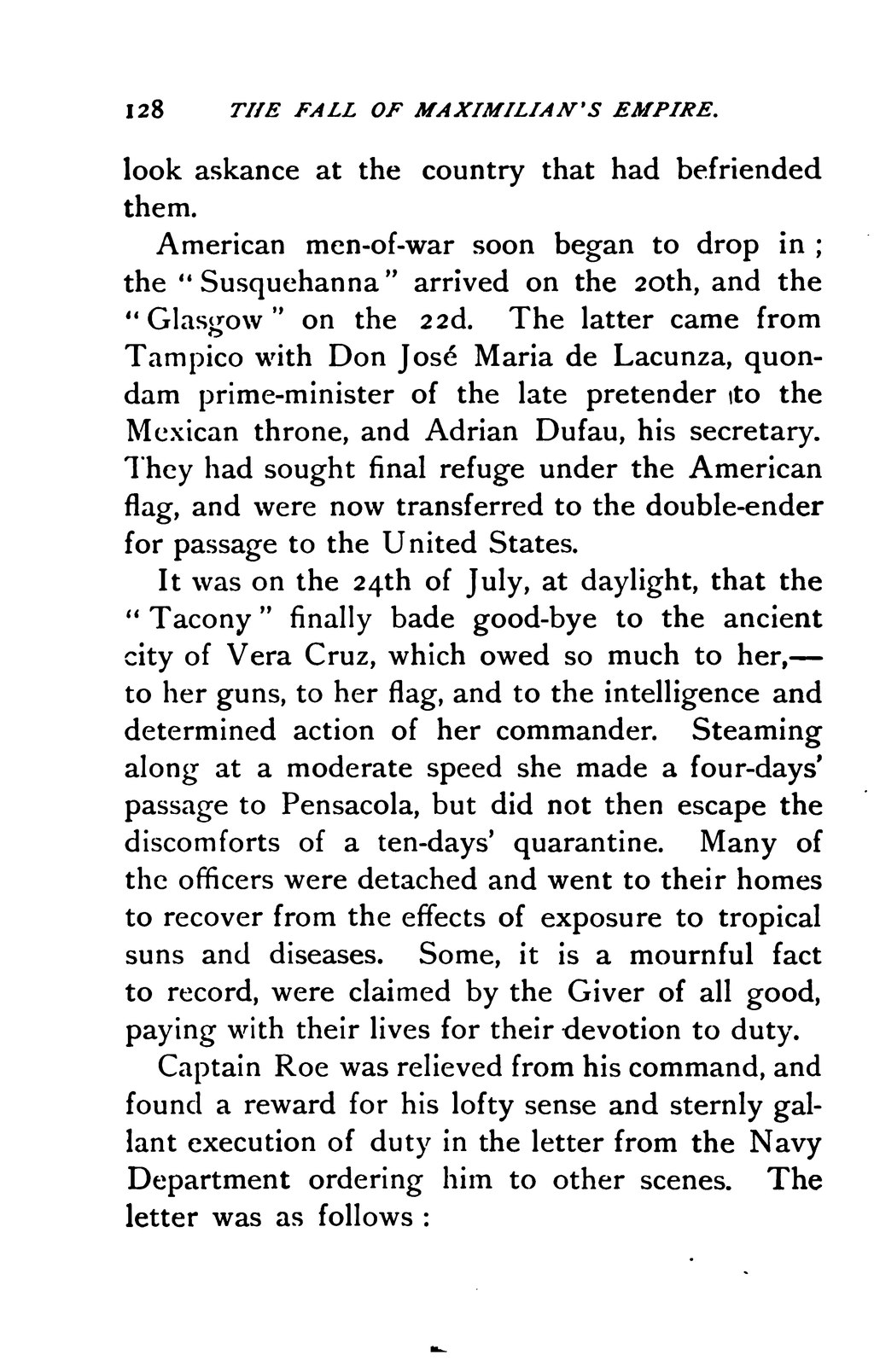look askance at the country that had befriended them.
American men-of-war soon began to drop in; the "Susquehanna" arrived on the 20th, and the "Glasgow" on the 22d. The latter came from Tampico with Don José Maria de Lacunza, quondam prime-minister of the late pretender to the Mexican throne, and Adrian Dufau, his secretary. They had sought final refuge under the American flag, and were now transferred to the double-ender for passage to the United States.
It was on the 24th of July, at daylight, that the "Tacony" finally bade good-bye to the ancient city of Vera Cruz, which owed so much to her,— to her guns, to her flag, and to the intelligence and determined action of her commander. Steaming along at a moderate speed she made a four-days' passage to Pensacola, but did not then escape the discomforts of a ten-days* quarantine. Many of the officers were detached and went to their homes to recover from the effects of exposure to tropical suns and diseases. Some, it is a mournful fact to record, were claimed by the Giver of all good, paying with their lives for their devotion to duty.
Captain Roe was relieved from his command, and found a reward for his lofty sense and sternly gallant execution of duty in the letter from the Navy Department ordering him to other scenes. The letter was as follows:

